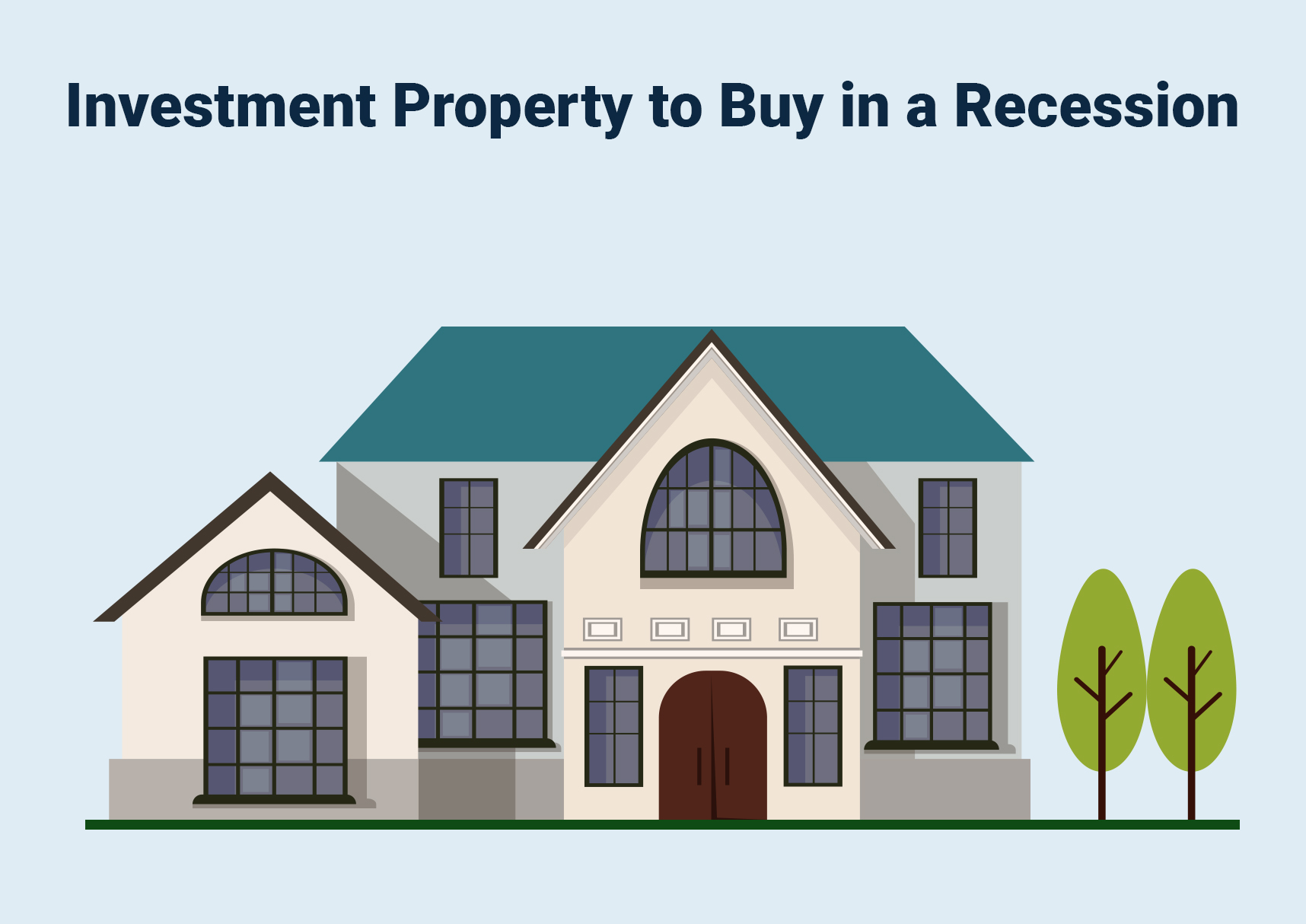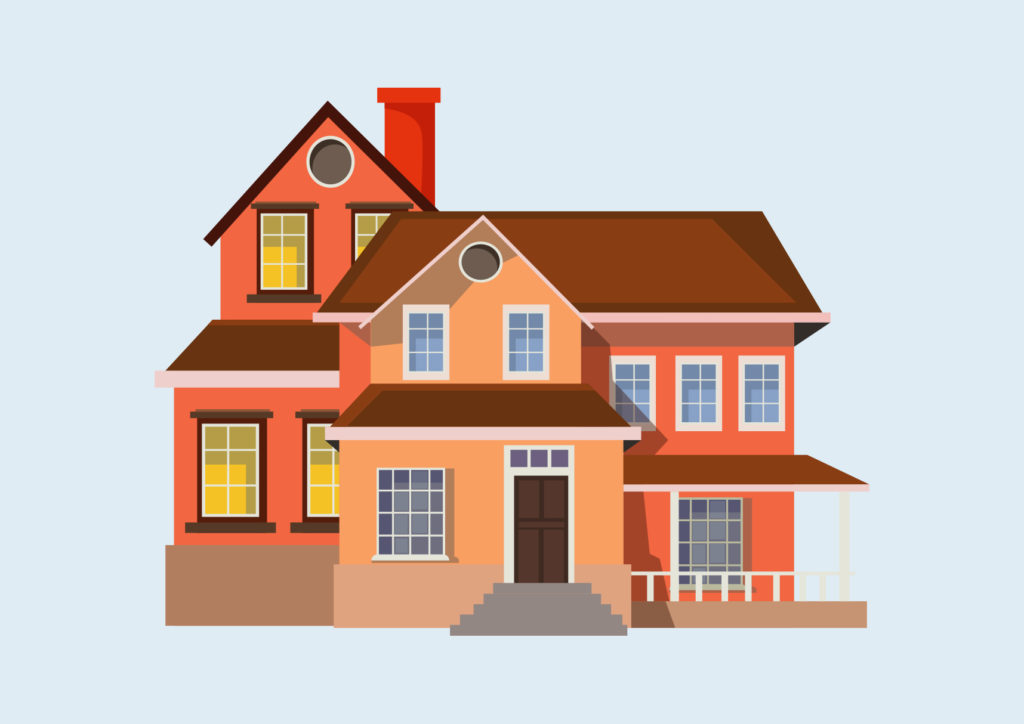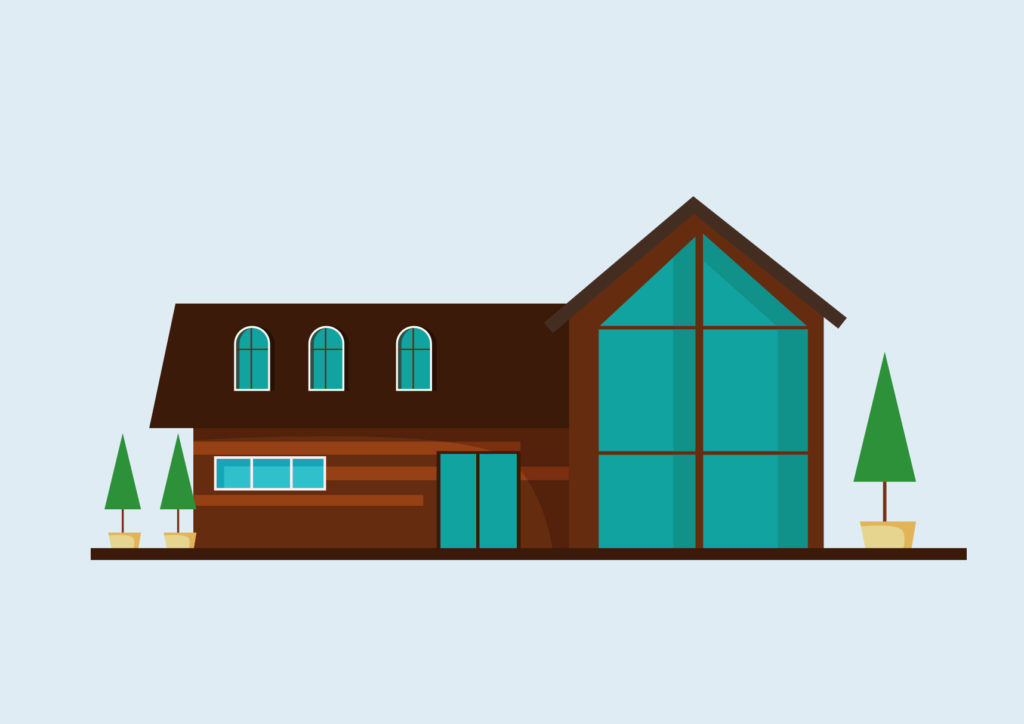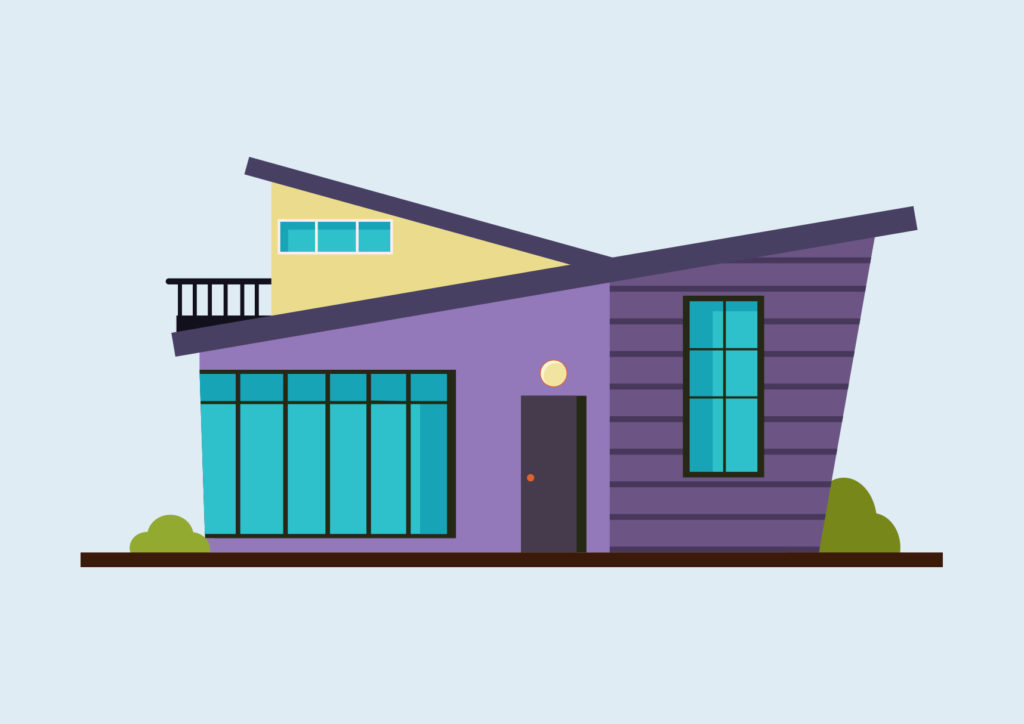Investment Property to Buy in a Recession

Is it wise to consider an investment property to buy during a recession? A recession impacts people and industries in different ways. For those looking to secure a property or get onto the property market, it can be an opportune time to find the right investment property.
In this article, we outline how a recession impacts the housing market. As well as whether a recession is a good time to invest in the property market. And what you need to know about investing in property in a recession.
What Happens to Property Prices in a Recession?
A recession is a widespread and prolonged economic downturn. A common rule to classify a downturn as a recession is two consecutive quarters of negative GDP growth.
Usually, a UK economy recession is expected to cool down the housing market. House prices tend to fall where there is a deep and prolonged contraction in the economy. As unemployment rises, it can be difficult for people who lose their jobs to repay a mortgage and, if a borrower falls behind, they may face foreclosure.
Declining home values do generally tend to go hand-in-hand with economic recessions but this isn’t always the case. Generally, it will depend on how severe a recession is. Overall when a recession hits, we do expect a cooling in the housing market.
Is a Recession a Good Time to Buy Property? 
Is the UK heading for a recession? Only time will tell, but there are different impacts on buyers and sellers you should be aware of before deciding on an investment property to buy.
– The pros and cons for homebuyers
If employment remains steady, a recession can make it easier for buyers to enter the housing market. In a recession, property prices tend to drop, leading to smaller deposits required and a lower total amount borrowed from lenders. A risk for homebuyers, however, is that they face the possibility of losing their employment.
- Falling property values
Falling home prices are a positive for potential home buyers. However, there is the possibility that home values will end up lower than the amount borrowed for a mortgage, leaving you with negative equity.
More recent homebuyers are most at risk from seeing their property value fall below the purchase price in a recession. Those that have owned their home for a longer term will usually find that their property value outpaces the mortgage, so will not be at a high risk of negative equity.
- Added pressure on homebuyers
Soaring inflation and a cost-of-living crisis is already impacting finances across the UK. A recession is likely to add extra financial pressure for potential home buyers who are saving money to put down a deposit on a home. Click here to read more about the impact of inflation on the property market.
- Tightening lender restrictions
In a recession, it is not uncommon for people to lose their jobs, which can mean their inability to repay a mortgage. Lenders will also tighten the criteria for getting a mortgage, making them less readily available.
During the 2008 recession, the UK housing market saw mortgage availability contract, which prevented buyers from borrowing. With it harder to get a mortgage, demand for property dropped, resulting in a less active and competitive property market.
- Less competition
In tougher times people tend to stay away from financial commitments like decade-long mortgages which cost hundreds of pounds per month to repay. This means that generally there are fewer people searching to buy a home or investment property to buy. When there’s less demand for housing, prices tend to drop. While this can be good news for investors, it’s not always ideal for those looking to sell their property.
- Rental trends
While property prices tend to drop in a recession, rental costs tend to stay high. With economic uncertainty, people tend to rent for longer to avoid taking on a loan like a mortgage.
What Should You Not Do in a Recession?
- Don’t expose yourself to financial risks
During a recession when things can be uncertain, it is best to reduce or avoid exposure to financial risks. These can include getting an adjustable-rate mortgage, or car loan, taking on new debt or becoming a cosigner on a loan.
When the economy is buoyant, taking on loans may not be a problem when you can make enough money to pay it back. In a recession, there is an increased risk of being laid off or losing business income, which can eat into your ability to pay your debt.
- Consider employment
If you decide to quit your job during a recession, you should bear in mind that it may take longer for you to find a new one. Business owners might want to wait on taking on new employees or new debt until an economic recovery has started.
- Have a rainy day fund
It’s a good idea to have between 6 months to 1 year of living expenses should the worst happen. Having a lump sum can ease the pressure should you find yourself in a bind, and act as a runway until things return to normal.
Is it Better to Have Cash or Property in a Recession?
It’s often said that cash is king during a recession. Having cash flow or liquid assets on hand is helpful during a crisis like a recession and can add flexibility to your business or living situation in case of job loss or a reduction in income. During recessions, investors will often add cash to their portfolio strategy. Interest rates often rise during a recession, meaning cash will earn more in a savings account.
While there are pros to saving cash during a recession, there are also some drawbacks. Cash is generally considered to be a “safe” investment – the value of your account won’t suddenly drop. Here are some of the benefits of having cash in a recession:
Benefits
– Cash means liquidity
A recession brings risks like job loss and being unable to pay bills. Having cash on hand rather than locked away in assets makes it easier to navigate uncertainty.
–Rising interest rates
Recessions often come with lower inflation, but the UK is currently experiencing a unique economic situation with high inflation of over 9%. The Bank of England may counter rising inflation by increasing interest rates. While this means higher interest rates on debts like mortgages, it also means higher rates on savings accounts which is good news for those that have money in the bank.
–Low risk
While investment avenues like stocks and cryptocurrency come with high risks, cash is one of the lowest-risk investment options. When investing in property to buy for investment, it’s unlikely you’ll lose it when the market changes, which is not a guarantee you can associate with the stock market.
While cash is a less risky investment, relying too heavily on cash can detract from your ability to meet your long-term goals. Here are a couple of the drawbacks of holding cash in a recession:
– Lost opportunities
Letting cash sit in the bank means losing out on potential returns through investments. While you may have financial security, cash brings less capital which lowers your returns.
– Unable to take risks that pay off
Some of the riskiest investments offer the highest returns. Being conservative and holding too much cash means investors miss out on high-growth opportunities in the stock market or property market.
-
Why is property a good investment in a recession?
Even if a recession causes the property market to cool down, this can be good news for investors. During a recession there are often more opportunities to purchase a property at discounted rates.
Real estate can also act as a hedge against inflation. Compared to other investment avenues like the stock market, real estate is more stable in the long run.
Here are a few of the reasons why buying property in a recession can be a good idea:
– Real estate appreciates in value
Over the long term, real estate values have continued to rise, despite some dips along the way. Even if economic turmoil like a recession causes the housing market to cool, there are instances where property prices have even increased during a recession.
– Housing is a necessity
Since it’s a basic need, people always need somewhere to live. Residential housing is always in demand and whether to rent or buy, people need shelter over their heads. Generally homes tend not to be subject to global economic conditions, less sensitive to volatility, this can make the housing market a good investment.
– Real estate is more stable
Compared to other investments such as stocks, real estate is more stable in the long run. Real estate is a tangible investment you can put to use even if its value decreases. Property can allow investors to earn rental income directly. Investing in real estate during a recession can provide some predictability through rental payments as income.
What Gets Hardest in Recession?
During a recession it tends to be jobs that depend on consumer spending that are the first to go. As consumers tend to have less disposable income, industries like retail, hospitality and food and beverage, like restaurants, are some of the industries hardest hit. Construction and manufacturing also tend to take a dip during a recession with projects slowing in pace.
How to Buy Investment Property: Tips when Buying a House in a Recession
There’s no such thing as recession-proof real estate but looking for investment property to buy can be beneficial in a recession. It’s important to keep the following things in mind before buying any property.
- Get your finances in order
Calculate what you can afford. A recession can open up more opportunities for buyers but you should know the ins and outs of your financial situation before you invest in any property. - Be flexible
During a recession home prices tend to dip, opening up the possibility of securing a house at a more affordable rate. In a recession it can be a buyers market so sellers are likely to negotiate. - Consider interest rates
During a recession interest rates for a mortgage will typically be higher. If the opportunity presents itself to buy a strong buy-to-let investment, you can calculate the rental yield to see if it is a sustainable investment. There may also be the opportunity to refinance your mortgage at a lower rate later on. - Consider different types of properties
The more units you are able to rent out the higher the rental income you can generate from your investment. HMOs, including student properties can be a great way to boost rental income.
Looking for an investment property to buy in a recession can be a good investment decision, especially as prices tend to fall. Often in a recession, it becomes a buyers’ market and investors can get lucky and find a property at a great price. While investments like crypto and stocks can take a hit and be risky in a recession, brick-and-mortar tends to be a relatively reliable investment that will pay off in the long term. To find out more about investing in property, get in touch with our experts today.

